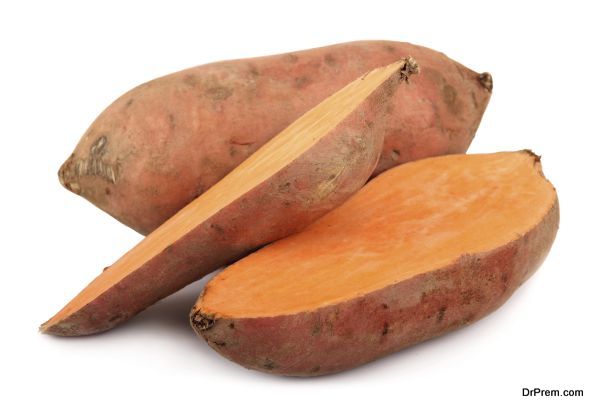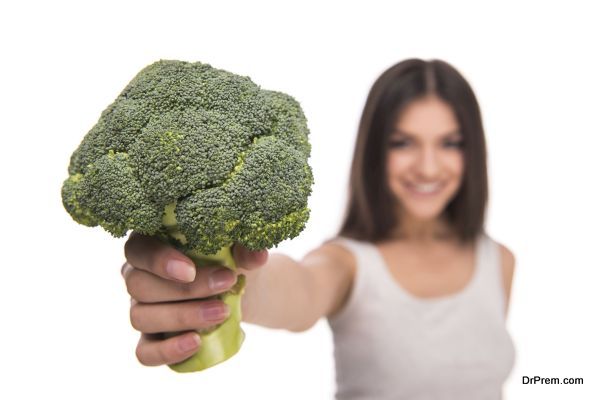The average adult should consume 5 servings of fruits and vegetables each day. It’s recommended that 2 of those servings are fruit, while 3 are vegetables. That’s because while fruits are high in essential nutrients and vitamins, they’re also a form of sugar. And a diet high in sugar can lead to weight gain, diabetes, and high blood pressure. But with so many fruits and vegetables to choose from, how do you know which ones to choose? If you’re looking to consume the fruits and vegetables that offer the highest nutritional value, then keep reading. This article outlines 5 of the best fruits and vegetables to include in your diet.
1. Avocados
 Avocados have grown in popularity in the last decade, due in part to the millennial generation and the introduction of “avocado toast”. But in all seriousness, the benefits of this healthy fat are undeniable. Don’t be fooled into calling this vitamin packing, green gem a vegetable though, because, in fact, it’s a single-seeded berry, falling into the fruit category. Regardless of its label, avocados help maintain healthy cholesterol levels and offer both antioxidants and vitamin E. It also contains ingredients that help fight inflammation. Try some avocado with breakfast, lunch, or dinner. Guacamole (in moderation) is another awesome source of this fiber-packed fruit.
Avocados have grown in popularity in the last decade, due in part to the millennial generation and the introduction of “avocado toast”. But in all seriousness, the benefits of this healthy fat are undeniable. Don’t be fooled into calling this vitamin packing, green gem a vegetable though, because, in fact, it’s a single-seeded berry, falling into the fruit category. Regardless of its label, avocados help maintain healthy cholesterol levels and offer both antioxidants and vitamin E. It also contains ingredients that help fight inflammation. Try some avocado with breakfast, lunch, or dinner. Guacamole (in moderation) is another awesome source of this fiber-packed fruit.
2. Mangos
 Carrots aren’t the only orange food known to help boost eyesight. Mangoes are packed with beta-carotene, which is known to promote good eyesight, help reduce discomfort associated with dry eyes, and combat night blindness. Mangoes also contain terpenes, leading most people to ask what are terpenes?Terpenes are organic compounds found in the essential oils of some plants and are often associated with THC use. If you’re looking for a quick boost to your immune system, mangoes are said to strengthen your body’s defenses against illness, and also contain a high-concentration of vitamin C.
Carrots aren’t the only orange food known to help boost eyesight. Mangoes are packed with beta-carotene, which is known to promote good eyesight, help reduce discomfort associated with dry eyes, and combat night blindness. Mangoes also contain terpenes, leading most people to ask what are terpenes?Terpenes are organic compounds found in the essential oils of some plants and are often associated with THC use. If you’re looking for a quick boost to your immune system, mangoes are said to strengthen your body’s defenses against illness, and also contain a high-concentration of vitamin C.
3. Sweet Potatoes
 Sweet potatoes are usually one of the “good carbs” found on low-carb diets. And that’s because the benefits that sweet potatoes provide far outweigh the negatives associated with carbohydrate consumption. Sweet potatoes are another good source of beta-carotene but are also filled with fiber, vitamin B6, vitamin C, mineral potassium, and folate. If you’re craving a carbs, opt for sweet potatoes over white potatoes. But don’t peel them! Many nutrients in a sweet potato are found in its skin.
Sweet potatoes are usually one of the “good carbs” found on low-carb diets. And that’s because the benefits that sweet potatoes provide far outweigh the negatives associated with carbohydrate consumption. Sweet potatoes are another good source of beta-carotene but are also filled with fiber, vitamin B6, vitamin C, mineral potassium, and folate. If you’re craving a carbs, opt for sweet potatoes over white potatoes. But don’t peel them! Many nutrients in a sweet potato are found in its skin.
4. Citrus Fruits
 Oranges, grape fruits, lemons, and limes are all considered citrus fruits and are most widely recognized for their levels of vitamin C. One orange contains over 100 mg of vitamin C, which far exceeds the recommended daily dose for the average adult. But vitamin C isn’t the only benefit citrus fruits offer. Fiber, folate, and potassium are also found in these sweet and juicy fruits. Lycopene, which is a healthy antioxidant, is primarily found in grapefruits. While you can drink citrus juices to feel the benefits, it’s best to avoid juices high in sugar and get the vitamins directly from the source.
Oranges, grape fruits, lemons, and limes are all considered citrus fruits and are most widely recognized for their levels of vitamin C. One orange contains over 100 mg of vitamin C, which far exceeds the recommended daily dose for the average adult. But vitamin C isn’t the only benefit citrus fruits offer. Fiber, folate, and potassium are also found in these sweet and juicy fruits. Lycopene, which is a healthy antioxidant, is primarily found in grapefruits. While you can drink citrus juices to feel the benefits, it’s best to avoid juices high in sugar and get the vitamins directly from the source.
5. Broccoli
 This green vegetable is one of the healthiest you can eat. Broccoli is part of the Brassica family, which encompasses a wide range of other vegetables including cauliflower, bokchoy, kale, and brussel sprouts. All of these vegetables are high in antioxidants, which help protect your cells from free radicals. Broccoli also contains sulforaphane, which is known for its cancer fighting benefits. You can also find vitamin A, C, and calcium in broccoli. Great raw, steamed, or included in your favorite recipe, broccoli is a versatile vegetable that is easy to incorporate in any meal.
This green vegetable is one of the healthiest you can eat. Broccoli is part of the Brassica family, which encompasses a wide range of other vegetables including cauliflower, bokchoy, kale, and brussel sprouts. All of these vegetables are high in antioxidants, which help protect your cells from free radicals. Broccoli also contains sulforaphane, which is known for its cancer fighting benefits. You can also find vitamin A, C, and calcium in broccoli. Great raw, steamed, or included in your favorite recipe, broccoli is a versatile vegetable that is easy to incorporate in any meal.
Your health in your hands
Eating fruits and vegetables isn’t only about keeping your caloric intake low and losing weight. Although many diets promote produce consumption for this reason, it’s what these fruits and vegetables have to offer that’s most important. Your body thrives on sufficient amounts of vitamins, minerals, and nutrients. Although most adults don’t consume the recommended dosage through diet alone, increasing your intake of these items can strengthen your immune system and get you closer to that recommended 5 servings a day.
Article Submitted By Community Writer




